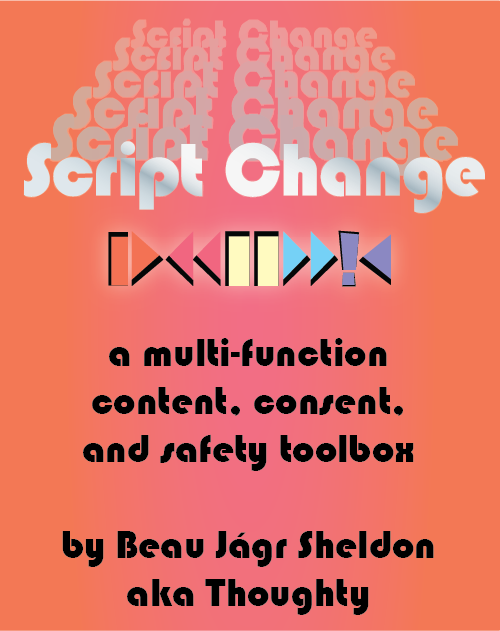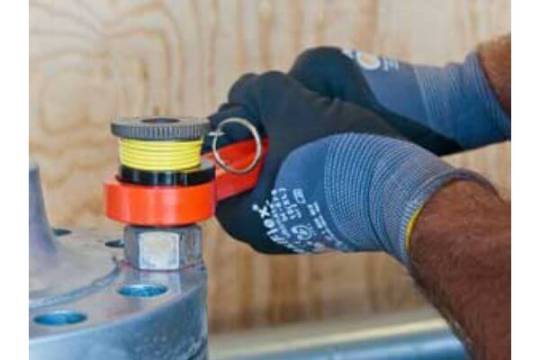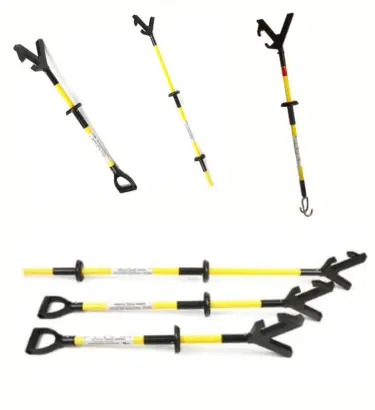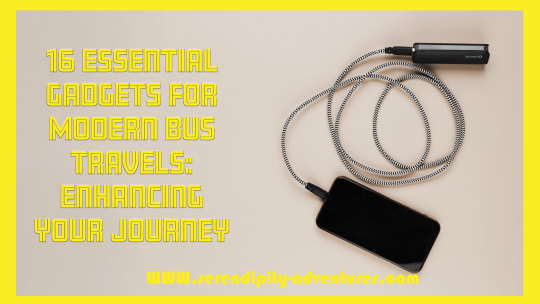#safety tools
Text
Shoutout to all my fellow TTRPG players with specific, sensitive subject matter they need to put in their Lines and Veils.
Shoutout to everyone who signs up for a light-hearted game and thinks, "I'm sure this really specific thing won't come up, but...better safe than sorry," and puts it in your Lines and Veils, even though you feel silly.
Shoutout to everybody being firm with your boundaries before a game starts, even when you feel exposed and awkward doing it. May we always have supportive tables, robust safety tools, and fellow players who don't ask about our sources of trauma.
254 notes
·
View notes
Note
I saw in the tags of a recent post you mentioned wanting to talk about safety tools—would love to hear your thoughts, especially re: learning and teaching them!
Hello friend!
Oh my gosh, where to start. I love safety tools and I think they can really enhance the game experience, especially when you are trying out tabletop games with a group of people you don't know very well. While it's great if you have a solid group of friends that are all interested in playing games together, a lot of tabletop gamers have to find a group first, and then make new friends along the way.
Entering a new environment is already scary, and entering an environment where you are expected to pretend to be somebody else is even scarier. You're showing a group of strangers a little bit of who you are - and they're doing the same thing. Not only that, improvising a narrative as you go has the potential to visit a wide range of topics - many of which might accidentally trigger a traumatic memory or an innate fear. (I might be preaching to the choir, but best to lay some ground work.)
So, safety tools. I usually layer a number of them into my games, because each tool serves a different use. I usually begin a new game or Session 0 with a quick review of each safety tool, including the X-Card by John Stavropoulos, Lines and Veils by Ron Edwards, The Open Door Policy as introduced by The Gauntlet, and something we call Check-Ins, which are a combination of tools found in Thirsty Sword Lesbians, as well as the Script Change safety tool by Beau Jágr Sheldon. Check-Ins work as follows: if a player is unsure about whether or not the thing they want to try is ok with the group, they can check in. The group then has a chance to rewind, alter play, or give the player a go-ahead. In return for checking in, the player who asked the group is rewarded with a point of XP. For our group, we have decided to edit the Lines and Veils to include Lures as well, Lures being elements that the players are excited to see in the game.
If the group is a group that has played with me before, or if we are playing multiple sessions in a campaign, I'll ask the members of the group to tell us about a safety tool that we use. Sometimes players will even bring forward a safety tool that we haven't used before! Each player who can tell us something about the safety tools we use at the table is rewarded with a point of XP, or something else useful to use in play. We also try to provide examples of what using a safety tool might look like for folks who aren't familiar with the concept.
Not every safety tool works with every group. I would love to use the Support Flower, for example, but I mostly run games online, and haven't found a good way to implement it. But there's many more options than just the ones I provided! If you would like to see a comprehensive list of possible safety tools, I recommend the curated list as provided by TheGiftofGabes on Itch.io.
#asks#safety tools#mint speaks#what I really love is that my friend group is starting to use safety tools outside of games as well#we don't feel obligated to stay if we're not feeling comfortable#so we'll just use the Open Door for any gathering#and sometimes if we're talking about something that is upsetting for someone#that person will say “I'm X-carding this conversation”#and we just move on
105 notes
·
View notes
Text
Four years ago I wrote a compilation of support tools for roleplay; I haven't updated the archive in many years, but the thoughts contained within and the tools in the collection are still just as valuable I think. Most of them are widely used in the ttrpg sphere, some are specific to larp, some are things I wrote myself based on my experience working with young people.
If there are any tools you've seen recently and think are missing from the document, please let me know! It is meant to be a living thing.
147 notes
·
View notes
Text
DnD safety tools quick and dirty pro tip:
The two extremely common triggers that people almost never think to put on their "lines and veils" sheet and then end up having an unpleasant experience with, are drug overdoses and suicide.
Everybody thinks to say "no rape" or "no torture" or "no slavery" but huge amounts of people have trauma with drug overdoses and suicide (two of the leading causes of traumatic death) that they don't think about during session 0. I strongly recommend that you ask your players straight up before you include those two elements in your game. Even if you're playing a high fantasy campaign, it is common to have fantasy drugs/substances that can be poisonous in large doses, or ritual/henchperson suicide.
Literally even if you did an RPG consent checklist that asked about those two things, if it's been a while since the start of your campaign, ask again. We once had a player lose a friend to suicide in the middle of a two-year campaign. Life comes at you fast.
I have played Dungeons and Dragons for nearly ten years, with an extremely conscientious dungeon master who has been using safety tools since before they were cool. The only player triggers that still consistently come out of nowhere and bite us in the ass are these two. Spare yourself the headache and ask your players if you're considering one of these storylines.
9 notes
·
View notes
Text
Oof. Currently learning the hard way that safety tools in d&d are essential, no matter the premise, tone, or genre of the campaign and no matter who you're playing with.
#dnd#d&d#5e#safety tools#context: our DM enthusiastically volunteered to run a few connected one-shots despite knowing aboslutely nothing about dnd rules or lore#there are 2 players new to dnd#2 players who have played in a short-lived campaign before#and only 1 player (me) who knows dnd rules-lore-and general etiquette#i didn't want to tell DM how to run his campaign so i didn't think to introduce safety tools.especially since most of us are family members#& especially bc it wasn't supposed to be a full campaign originally#all this to say. i'm learning the hard way that playing without safety tools can get really unfun#my post
12 notes
·
View notes
Text
The X card isn't actually a good system of setting boundaries in an rpg context. It attempts to speed up and get away when someone is triggered when that's a very bad way of dealing with things, and attempts to disallow all discussion when you have to talk to properly set boundaries.
I've ran and played in games with strangers for years and the only time its ever been used has been as a method of bullying people. Because the X card is the exact type of thing people who see other's kindness as a way to seek power will utalize.
I think the X card is popular with game designers because it uses the language of game design. But boundaries are the one thing that can never be a game mechanic.
9 notes
·
View notes
Text
Wanna make running online TTRPGs easier?
Great news! I made a prep template for Monsterhearts 2, but it's very adaptable for other Powered by the Apocalypse games (or honestly, your favourite TTRPG).
This template establishes what players can expect from your game, lets you do your safety setup (like lines and veils), and has a who's who for your Player Characters & NPCs all in one single document!
This document is: Neurodivergent friendly | Colour-coded | Highly customizable | Google Docs shareable
What's inside?
Player instructions for what to do before the game
Details about the structure of your game
The Safety section - including a brand new safety tool I designed!
Charts for your PCs and NPCs
Setting Lore Activity
Custom Moves (Two of them! I wrote these for you)
Check it out: https://orbw.itch.io/monsterhearts-prep
8 notes
·
View notes
Text
The Final Script Change

After 10 years of research, testing, and widespread implementation of the base Script Change RPG Toolbox, the final version of Script Change is on itchio & my site. I've included full color and black & white versions, emojis, playing card & tarot card size tools, printable card sheets, an RTF with minimal formatting and no colors or graphics.
My goal was to have it done by Pride's end! I have been managing my health and ran into some tech hiccups, so the final files were posted a little closer to midnight Pacific than Eastern, but I hope you can forgive me just this once.
THANK YOU
The Final Script Change RPG Toolbox is here:
briebeau.com/scriptchange
thoughty.itch.io/script-change
#ttrpgs#thoughty#script change#ttrpg#roleplaying games#tabletop roleplaying games#safety tools#calibration tools#art#scriptchange#games#gaming
2 notes
·
View notes
Text
I'm gearing up to run a campaign of Heart: The City Beneath, which is a horror TTRPG, and, strictly to toot my own horn a bit, I'm rather proud of my Content Warning and Safety Tools write up.
'Content Warnings
'Heart is a game of wonder, horror, tragedy and
humanity in the face of inhumanity. Each player
character is fundamentally doomed, as most of
the high-level abilities kill the user when
triggered. This isn’t a game about long-term
exploration and growth. It’s about flawed,
obsessive people making bad decisions and
investigating a horrific undercity because they’re
convinced that the answers they need might lie
inside it.'
Your character does not die until you decide that they do, whatever terrible fates await them in The City Beneath they can continue to delve so long as they can shoulder the terrible consequences of their folly. Your character may be maimed, their sanity can be strained to the breaking point, you may become a pariah unwelcome in what passes for civilization in the darkness beneath the earth, your debts and debtors may come to collect their dues, you may find yourself out of supplies and wandering the blackness without end, and worse The Heart itself may take notice of you.
This is a horror game and thus it's important to manage expectations. My preferred method is to use Lines and Veils, and the X Card
A line is something we do not want to explore or experience in game, it will not be brought up. Meanwhile a Veil is something we are alright with being alluded to in the story, but which we will not go into any great detail on when it occurs, we fade to black when Veiled subject matter occurs.
Meanwhile the X-Card is a safety tool for those situations that may crop up in game that people are uncomfortable with, simply send me a message, or post a message in the player chat with a Capital X, and whichever scene made that player uncomfortable will be removed and moved past, no questions asked.
My Baseline Lines and Veils are as follows:
Lines: I don't want to tell a story about: Sexual Assault, Child Abuse
Veils: I don't want to go into detail on: Sex, Torture
I encourage you all to add to this list as needed.'
1 note
·
View note
Text

In pipe hammering operations, safety and efficiency are paramount, and the use of reliable and durable tools is crucial. One such tool is the Petol Hammertight Wrench Retainer. In this article, we will explore what the Petrol Hammertight Wrench Retainer is, how it works, its features and benefits, its industrial utility, and why you should order it.
0 notes
Text

The Stiffy Push Pull Tool, also known as the Stiffy Safety Tool, is entirely produced within the United States. This innovative tool serves the crucial purpose of preventing direct contact between hands and heavy loads, effectively safeguarding workers against potential finger and hand injuries.
0 notes
Text
On Mind Flayers and Safety Tools
or Why Aren't You Having Fun, You Miserable Fucks
Apparently some assholes read something in a D&D book that was like "hey there's an option in this module that could be upsetting to players, so before you do this, make sure you have consent from players," and got SUPER upset about it, and it's got me thinking about GMing and how I feel about it.
Idk if it's a D&D thing or a dude thing, but there's this narrative about DMs* where they're like, these all powerful gods whose job it is to punish players who "make dumb decisions." When players express preferences, or ask that certain material be off-limits, these guys act like players are trying to cheat their way to "winning the game," by avoiding consequences. They get mad even THINKING about it. They don't want to collaborate on a story, and I don't think they even want to be a glorified referee. They want to be cops. They want to impose their will on the people around them, and they want to be petty, vengeful shits while they do it.
That has not been my experience DMing, nor has it ever been my desire (because I'm not a fucked up dude-monster). GMing is an act of service, one that I love to provide.** I GM because I want my friends to have a fun time, and I want to have a fun time with them. I want to hear their ideas. I want to hold their hands and guide them back to a state of childlike imagination, before they were afraid of looking stupid. I want them to feel safe to explore emotions they push away in day to day life.
When something bad happens to their character, I want it to be the bad thing THEY want it be: the inevitable tragedy we've been foreshadowing since character creation, that fatal foible they've been mentioning all session, the darkness they've been treading further and further into.
People tend to simplify "safety tools" into "don't trigger your players." That's obviously one goal, but my view is that safety tools are a lot more than that, and avoiding triggers is the minimum of what safety should do. I want to know what stories we're tired of telling. I want to know what tropes we dislike. I want to know if a character from someone's backstory is one they'd like to stay alive, or one they want to find dead at the hands of the BBEG. I want to give them the chance to name their own parents and siblings. I want them to decide if the sports team they play on is doing well or not when the story begins.
Even outside the narrative aspect of safety tools, when I stream, I always explicitly tell players "You know your needs more than I do. If you need to get up and get a drink or a snack, or tend to any other need, get up and do it. You don't need to ask for permission." I consider this part of player safety. I want people to be comfortable.
Regardless of your role at the table, if you're playing and you don't give a shit about whether or not everyone at the table is having a good time, I think you're fucking up the most BASIC aspect of what a TTRPG is. It's a game.
It's supposed to be fun.
These asshole DMs are failing TTRPGs at the most basic level. "How am I supposed to punish my players if they say they don't want to get turned into a Mind Flayer?" Why the fuck are you punishing people in a game? When your friends sit down to play Monopoly, do you call dibs on being banker and then say "oh btw if anyone does what I think is a stupid move, I'm going to tase you."
If you want to run a game where you can turn people into a Mind Flayer when they fail a roll, then find a table of people who would enjoy that.*** Some people have genuine fun playing Dark Souls, whereas if I ever played a souls-like game, I would die of frustration. I'm not here to tell you how to have fun. I'm just here to tell you that everyone should be having a good time playing games, whatever that looks like.
*I would usually use the more generic term GM, but this seems to be a specifically DM thing
**This gets into my thoughts comparing different GM styles to different kinds of sex but sadly my brand isn't horny enough for me to write that.
***Honestly a lot of this has sexual parallels but again, I must consider my sexless brand
24 notes
·
View notes
Text
SeptembeRPG Day 26
26: Safety mechanics saved the fun when:
One of the first Chronicles of Darkness games I ran nearly suffered when a player tried to take away another player's agency by doing something that would limit another character's ability to protect themselves. I asked the second player if they wanted to use the X Card, and they did. We re-did the scene and gave the first player a few other options instead. Using the X Card was able to signal that something was very serious for a player - it wasn't just their character that was reacting, it was the person behind them.
5 notes
·
View notes
Text
Online Scams Targeting Seniors: A Growing Threat and How to Fight Back
Our beloved seniors are increasingly becoming targets for #onlinescams. Their trusting nature and vulnerability to loneliness make them prime prey for #romancescams and financial deception. This is alarming!
#protectingourseniors #onlinesafety #content
Protecting Our Elders from Online Scams
This blog post focuses on the increasing prevalence of online scams targeting older adults. It explores common forms like romance scams and financial schemes, highlighting red flags to watch out for. The post emphasizes the importance of building a secure online environment through strong passwords, security software, and awareness of suspicious links.…

View On WordPress
#Business Email Compromise (BEC)#Financial Scams#Internet#Online Scams#Open Communication#phishing#Phishing Emails#Red Flags#Romance Scams#Safety Tools#scams#Seniors#Social Media Scams
0 notes
Video
youtube
Hand Tool Safety Rules
#youtube#hand tools#hand tool safety#hand tool#tools#toolsafety#tool safety#safety#safetyfirst#safety first#safety tools#safety tips#power tools safety#power tool safety rules#hand tools safety rules
0 notes
Text
16 Essential Gadgets for Modern Bus Travels: Enhancing Your Journey
Explore the top tech tips and essential gadgets for modern bus travel, enhancing connectivity, entertainment, and comfort on the go
Introduction
In the era of technological advancement, the impact of gadgets on travel is both profound and transformative, particularly in bus travel. This evolution has turned ordinary bus journeys into efficient, connected, and enjoyable experiences. “Tech Tips: Essential Gadgets for Modern Bus Travels” explores a variety of indispensable gadgets for contemporary bus travelers. From the…

View On WordPress
#connectivity devices#entertainment gadgets#essential gadgets#health gadgets#modern bus travel#safety tools#tech tips#travel comfort#travel photography#travel technology
1 note
·
View note